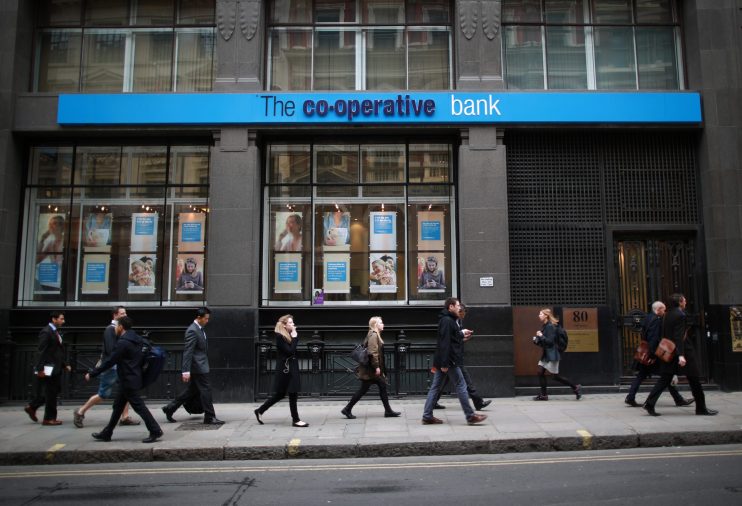Co-op Bank losses deepen amid tougher mortgage competition

The Co-operative Bank has reported an increased pre-tax loss for 2019, as the high street lender struggled with tough mortgage competition and PPI compensation payouts.
The figures
Co-op Bank posted a loss before tax of £152.1m for 2019, an eight per cent rise on the £140.7m recorded the previous year. It said that its underlying loss of £19.7m, compared to an underlying profit of £23.6m in 2018, was in line with expectations.
The high street lender’s net interest margin — the difference between what it earns from loans and pays for deposits — fell to 1.75 per cent, compared to 2.05 per cent in 2018.
Co-op Bank, like many of its rivals, has faced pressure on profitability from intense mortgage market competition and record low mortgage rates.
Despite this, the lender increased its mortgage book by five per cent after generating £3.8bn of new business, while consumer and small business deposits both grew six per cent.
The bank also warned that ongoing competition and the anticipated high cost of issuing so-called MREL debt this year would increase pressure on its margins.
Why it’s interesting
The Co-operative Bank has been working to overhaul its finances since its near-collapse in 2013 and subsequent rescue by a consortium of US hedge funds in 2017.
High costs, including the bill for separating its IT systems from former parent company Co-op Group, have kept the lender in the red.
Co-op Bank reported so-called strategic project costs for 2019, including the IT project, of £96.9m. It also made a £63m provision for compensating customers who were mis-sold payment protection insurance (PPI)
What Co-op Bank said
“In 2019 we successfully completed the first stage of our five year turnaround plan and our achievements have put in place a platform for growth for the years ahead,” said chief executive Andrew Bester.
“While there is still work ahead, we have significantly improved our digital proposition and reinvested in our distinctive ethical brand,” he continued.
“Having tackled the legacy issues of the past, we now have the foundations for the Bank to grow and our brand presents real potential in a market where consumers want to drive change by seeking greener and more ethical choices,” said Bester.